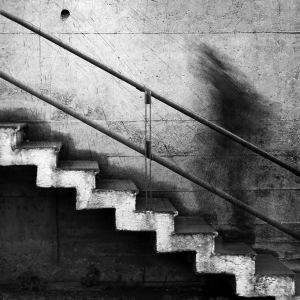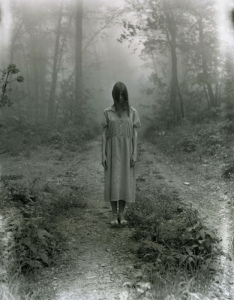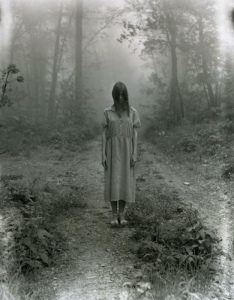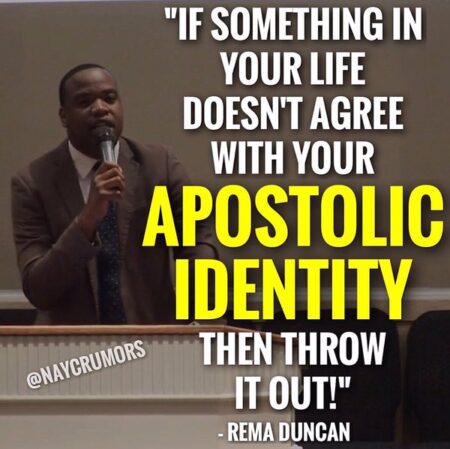Editorial Note: The following is reprinted with permission from Eleanor Skelton’s blog. It was originally published on January 10, 2015.

They make me feel so empty
Their words, they cut like knives
You tell me to forgive them,
But I’m not sure I’ll survive… – TFK, In My Room
“The way you talk about English, you really don’t seem like a dentist to me. You talk about it like you really love it,” Cynthia B. said, shifting in her electric wheelchair.
Cynthia B. was my first friend outside the box. We met in a British literature survey class fall semester 2010.
“I get that the practice is your dad’s gift to you, but maybe there is another way to honor him. Maybe you could take the practice, keep it for a few years, then pass it on to safe hands. And do something with English.”
But I didn’t see how I could be my real self and not disappoint my parents. Since I couldn’t have both, I was sacrificing myself in an attempt to please my parents and protect my siblings.
But my creative soul was reawakening.
My dad said leisure activities were a waste of time since it wasn’t school or work for his office. He said rest was for the dead.
I taught myself to sightread music using a hymnal when a family friend gave us her old piano right after moving to Colorado Springs. Mom had wanted a piano ever since she first married. Dad said I didn’t have time for lessons, but later allowed my sister to learn from our pastor’s wife.
But if Mom or I sat down to play, my dad would call us away within minutes and give us a more useful task.
I hid in my room when I read or wrote poetry or waited until I was alone in the house to play a musical instrument.
Senior year of high school, I took A Beka Academy’s Jaffe Strings orchestra program for the performing arts requirement, using a family heirloom violin from the 1890s.
But Dad didn’t let me play in the orchestra group at church or take private lessons after graduation. He drove me to rehearsals, but had Mom call my mentor and say I couldn’t attend the actual performance. After two times, I gave up.
Later, I drove myself to college, so I paid for violin lessons every other week second semester of freshman year. But June 2010, a week before our group performance in church, Dad told me I couldn’t participate because it was on his birthday.
I called my teacher to back out. She was furious. I hung up, called my mom crying. Mom said I had to obey my dad.
I asked Jesus if I could die now. Breathing hurt.
Trapped at home alone, I dialed Focus on the Family’s number in a panic around 9 a.m., thinking they wouldn’t involve the outside government agencies I feared. I told the elderly lady who answered that I was suicidal and needed to speak to a counselor.
While I waited, I read forum threads online to distract myself and watched the Lifehouse Everything skit on YouTube and sobbed.
A counselor called back around 2 p.m. I told him my dad controlled me and didn’t let me have friends and I was miserable. He said I should join a college Bible study on campus or at church.
I told him Dad didn’t allow that and asked him how I could move out and honor my parents. He said I needed to keep living at home and seek out friends and a mate in Bible study groups. Then he prayed with me and hung up.
Dad relented, I was in the performance. But he said he didn’t see any value in doing special music at church.
I despaired. The one hotline I trusted to keep my anonymity didn’t understand. Maybe I was the problem, maybe I should accept my loneliness and deaden my desires.
This is how I stopped feeling, how I got emotional hypothermia.
But I didn’t stay alone.
In October 2009, first semester of college, another homeschooled friend I met in driving school invited me to CleanPlace, an online Christian writer’s forum for teens run by a handful of women writers in their 30s. They encouraged my poetry and feedbacked my stories. They didn’t dismiss creativity as a waste of time.
Most of the members were homeschooled, and several of them had been crushed and isolated like me. I found community. I wasn’t the only one stuck in the box.
I started making friends at college, too.
First I befriended my professors, since I was a straight A student and I was used to talking to adults, not my peers.
Then I tutored chemistry in the Science Center on campus, my first real job outside my family or my church.
I’d avoided the punk girl with long pink hair and industrial piercings who yelled F*** at her Analytical Chemistry textbook, but then she befriended me. We debated Christianity and philosophy and traded graphic novels.
After sophomore year, I let myself read for fun again.
That summer and fall, after a discussion with one of my writing mentors, I read the Harry Potter books and later wrote a defense of them as being almost Christian fantasy.
I was happier than I’d been in years.
But my parents saw me changing. And they were afraid.
Read Parts Three and Four.











